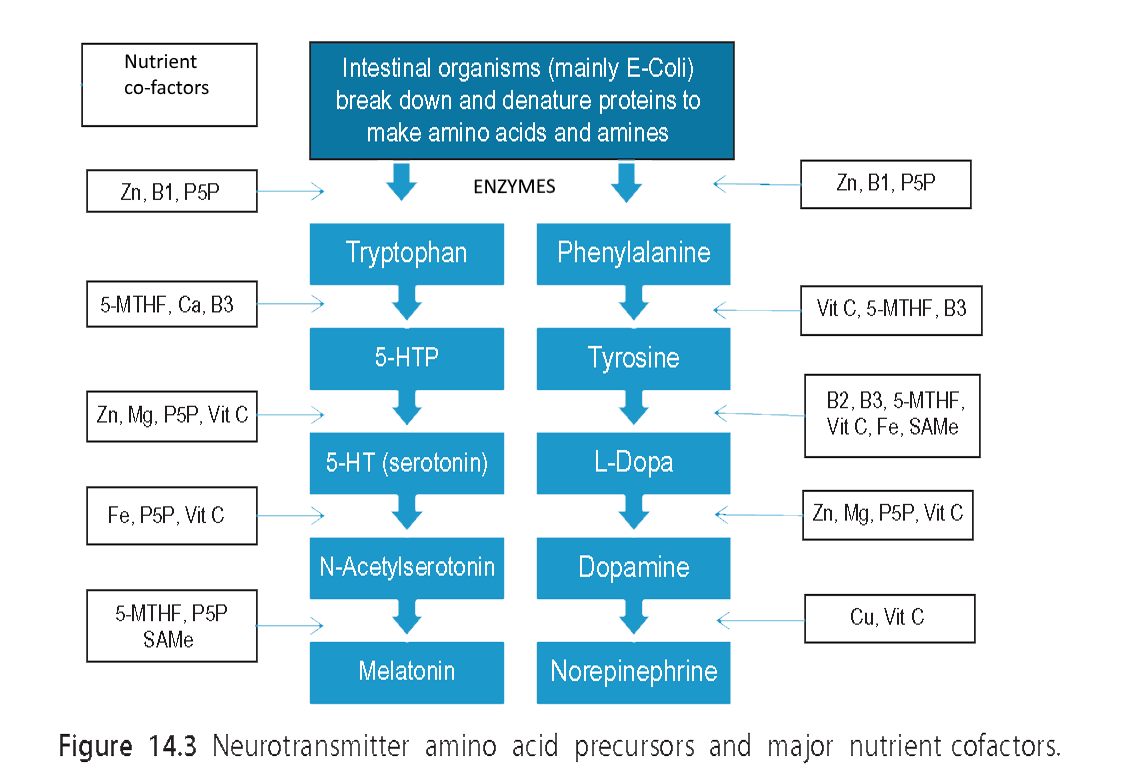Nutrition for Mental Health
Your brain never switches off. In fact, your brain is working and consuming energy even when you are asleep. Your brain regulates your breathing, heartbeat, senses, thoughts, and movements. For this reason, it requires a constant supply of nutrients for fuel, all of which are derived from the foods that you eat. To put it in simple terms, ‘you are what you eat’. The nutrients that you receive from your diet directly affect the structure of every cell in your body, including your brain cells (neurons) and their function. These brain functions, in turn, affect your ability to think and feel. Your brain functions at its best when it gets optimum levels of nutrients from foods that contain many vitamins, minerals, fats, proteins, and antioxidants to protect cells from oxidative stress and inflammation.
Diets that are high in processed carbohydrates are harmful to brain cells since these carbohydrates promote inflammation and oxidative stress. Several studies have found that diets high in refined carbohydrates and sugars are associated with impaired brain function, and correlated with mood disorders, such as anxiety and depression. Wheat lectins, from the wheat that we commonly consume, can damage epithelial cells and mucous membranes causing inflammation.
Read this e-book sample: The dark side of wheat for a review of the evidence of wheat toxicity.
To this day, despite a multitude of scientific studies that demonstrate the link between diet and mental health, modern medicine continues to largely ignore the connection between mood and diet. It is commonsense that if your brain lacks nutrients, or if circulating free radicals cause inflammation, something has got to give. Not surprisingly, the incidence of ADHD, Autism, Depression, Anxiety, Diabetes, Cancer, and other modern non-communicable diseases, are rising. In 2011, Dr. Margaret Chan, a former Director General of the Wealth Health Organisation called it a ‘slow motion Catastrophe, an impending disaster’. Chan pointed at highly refined processed foods as the culprits driving the epidemic.
Nutrients for Psychiatric Disorders
Nutritional Psychiatry is an emerging field, grounded in evidence-based science, that that there are direct correlations between what you eat, how you feel, and how you behave.

The above diagram illustrates the role of nutrients in the manufacture of neurotransmitters in the brain. Gut organisms (bacteria), mainly E-Coli, break down proteins to make the amino acids Tryptophan, Phenylalanine, and Tyrosine (amongst others). These get converted by the enzymes produced by genes (large blue arrows) to make neurotransmitters (messenger chemicals). Note: each enzyme has specific nutrient co-factors, without which the enzyme cannot function.
- Tryptophan gets converted to Serotonin, which helps regulate peristalsis (bowel movement), appetite, mood, and pain. Serotonin gets converted into Melatonin which regulates and promotes sleep.
- Phenylalanine and Tyrosine get converted to Dopamine and Norepinephrine which are essential for focus, concentration, and lack of distractibility.
These nutrients are vital for brain function. Thus, it makes total sense to try and optimise these nutrient levels to promote healthy brain function and reduce psychiatric symptoms.
The brains of patients with depression or anxiety do not lack drugs, they lack nutrients.
For more information on this topic, please see: Nutritional medicine as mainstream in psychiatry, Sarris J, et al. Lancet Psychiatry. 2015
Although the field of Nutritional Psychiatry is relatively new, there is observational data showing the correlation between diet and mental health quality. Controlled studies in manty countries show that diet and nutrients have a significantly large effects on mental health.
For more information on the mind-gut connection, see the links below:
Reviews:
- http://ajcn.nutrition.org/content/99/1/181.long
- http://www.ncbi.nlm.nih.gov/pubmed/23720230
- http://www.ncbi.nlm.nih.gov/pmc/articles/PMC4167107
- https://www.ncbi.nlm.nih.gov/m/pubmed/30620820
- https://www.ncbi.nlm.nih.gov/m/pubmed/26317148
- https://www.ncbi.nlm.nih.gov/m/pubmed/25830700
- https://www.ncbi.nlm.nih.gov/m/pubmed/28942748
Intervention studies that show how dietary improvements can prevent depression:
- http://www.ncbi.nlm.nih.gov/pmc/articles/PMC3848350
- http://www.ncbi.nlm.nih.gov/pmc/articles/PMC4050338
Diet and mental health outcomes in children:
- http://www.ncbi.nlm.nih.gov/pubmed/24074470
- http://www.ncbi.nlm.nih.gov/pubmed/25524365
- http://www.ncbi.nlm.nih.gov/pubmed/23541912
Diet and brain plasticity:
In addition, you will find thousands of other publications about the benefits of nutrients such as zinc, magnesium Vit D3, Vit B, Fish Oils. By searching Scholar.google.com with terms such as the nutrient name and the disorder you will pull up many results.
For example, the search term ‘ADHD and Zinc’ brings up 15,400+ results.
